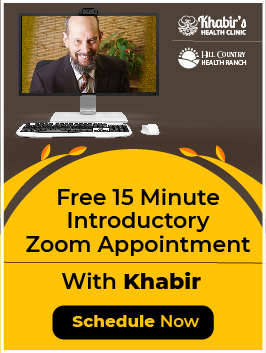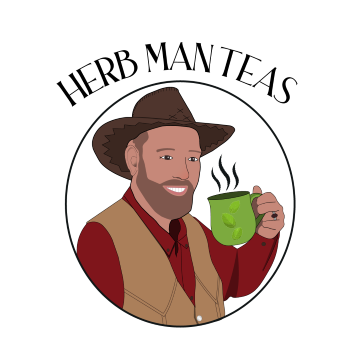Zoom workshop: Fundamental Principles & Physiology of Ayurveda
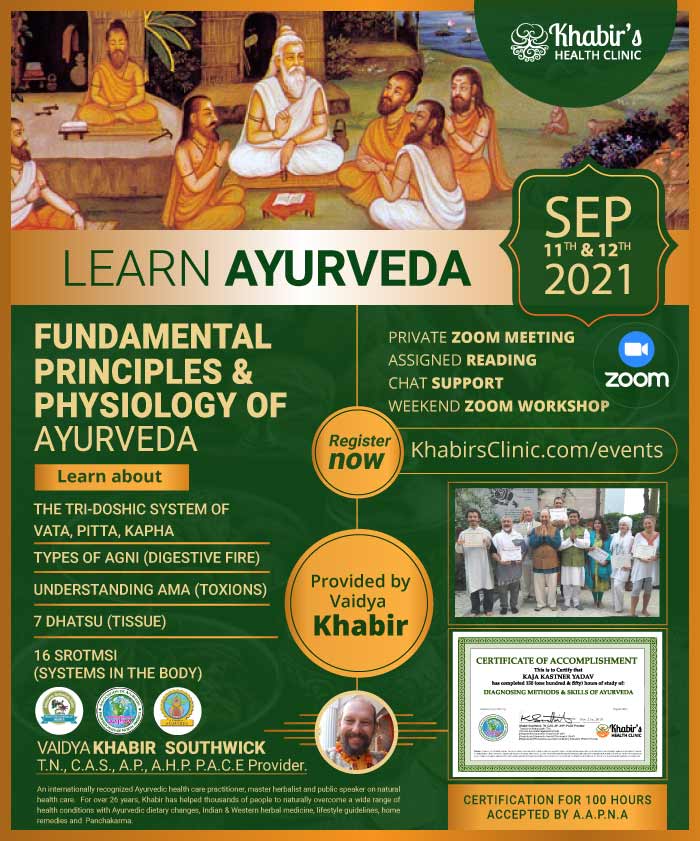
6th annual
Fundamental Principles and the Physiology of Ayurveda
In 2021 this course is only available on Zoom (not in India)
Part of Khabir's Certificate Ayurvedic Health Counselor (AHC) & Ayurvedic Practitioner (AP) Program
- Sep. 11th & 12th, Saturday & Sunday from 10am to 12:30 and 2pm - 4:30 on Zoom in a small group
Video intro to course: (Old video, Ignore references to India)
Course Syllabus:
Course objectives:
-
Develop a thorough foundation in understanding Ayurveda by learning about the Ayurvedic perspective of the human body: Anatomy and Physiology
-
Learn to view the human body, its functions, and imbalances in terms of the doshas (Vata, Pitta & Kapha), sub-doshas, dhatus (tissues) and srotamsi (systems), waste products (mala), prana (life force), ojas (immunity), etc.
This practical and intensive course will establish the foundation to proper Ayurvedic diagnosis and treatment skills (since Ayurvedic anatomy is very different from the western system). Ayurvedic therapies are based on Ayurvedic anatomy and energetics so it is essential to learn these fundamentals before proceeding with diagnostic skills, herbology (dravya guna), dietary counseling (ahara chikitsa), panchakarma (five types of detoxification therapies) and rasayana (rejuvenation or nutritional therapy).
Course Outline:
Part 1: Fundamental Principles of Ayurveda
- Understanding the 5 elements – Akasha (Space), Vayu (Air), Jal (Water), Agni (Fire) and Prithvi (Earth) and their attributes (gunas).
- Understand clearly the Tri-doshic theory (Vata, Pitta, Kapha), and the 15 Sub Doshas, their locations and qualities.
- Learn how every physical characteristic, as well as one's mental capacity and emotional tendencies can, be explained in terms of the doshas.
Part 2: Ayurvedic Anatomy and Energetics
- Learn about the concepts of Prakruti (original constitution or "body type") & Vikruti (current doshic imbalances)*.
- Understand Agni (digestive fire) - Learning about the roles and functions of Agni, the main types of Agni, tiksna agni (high/sharp), vishama agni (variable), manda agni (dull), sama agni (balanced), and the subtypes of Agni.
- Learn about Ama (metabolic toxins) and Malas (body's waste products): Understand the three primary malas being Purisha (feces), Mutra (urine) and Sveda (sweat), types and causes of Ama.
- Learn about the 7 Dhatus (body tissues): the Rasa Dhatu (fluid), Rakta Dhatu (blood), Mamsa Dhatu (muscle tissue), Meda Dhatu (fat/adipose tissue), Majja Dhatu (bone marrow and nerves) and Shukra Dhatu (reproductive tissue). Learn how Dhatus successively nourish each other, and how the state of each tissue forms a pillar of health, or when imbalanced deteriorates the body's ability to maintain homeostasis.
- Learn about 14 Srotamsi (channels or systems) [essential for clinical practice]: 3 channels that receive food, water and prana (life-force energy); 7 bodily channels which nourish and maintain the body's tissues (dhatus); 3 eliminating channels for feces, urine and sweat; the manovaha srota (the channel of the mind).
- Learn about the subtle qualities and functionality of Prana (life-force energy), Tejas (metabolic fire) and Ojas (immunity).
- Understanding the three gunas - Sattva, Rajas and Tamas (states of mind and being), and their essential components or energies.
Part 3: Demonstrate knowledge of Ayurveda anatomy
- Each participant will describe, in a reports, their individual:
- Prakruti (original body-mind type) and Vikruti (current doshic imbalances) and sub-dosha imbalances
- State of Agni and Ama
- State of each Dhatu (tissue) and the respective Srotamsi (channels)
- State of Prana, Tejas and Ojas
- State of mind based on the gunas: Sattva, Rajas, Tamas.
* Sanskrit words that are important in clinical Ayurveda will be thoroughly explained.
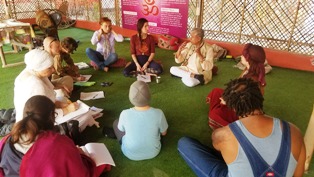
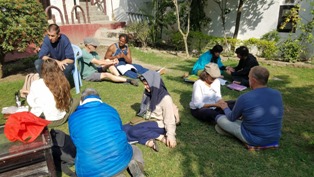
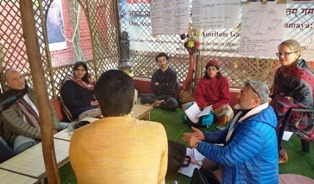
Testimonials from other students
Ayurvedic Health Counselor (AHC) & Ayurvedic Practitioner (AP) Program
Costs:
US$300
Payment includes:
-
- Private Zoom meeting with Khabir upon registration
- Group Chat support during self study period
- Small Group Zoom class by Khabir: 2 days, 10 hours
- Review and feedback of Final Report
- Certificate of Completion
Additional private Zoom classes are available @ $70 per hour (for students only)
Certification is for 100 hours of study.
Sample Certificate:
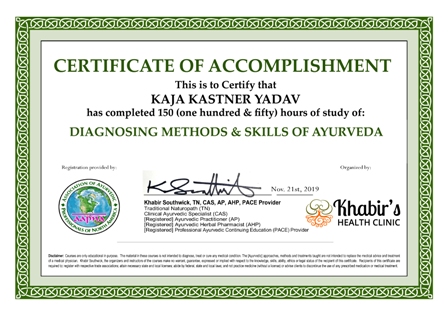
* Textbook and prior reading required: Anatomy and Physiology in Ayurveda is an additional $16 (Amazon price without shipping)
CERTIFICATE OF ACHIEVEMENT
Upon the successful completion of this first workshop, a personalized CERTIFICATE OF ACHIEVEMENT for the course, Fundamental Principles & Physiology of Ayurveda (100 hours), will be provided by Vaidya Khabir Southwick, PACE provider which can be used to obtain continuing education credits.
AYURVEDIC HEALTH COUNSELOR (AHC)
Upon the successful completion of the 3rd course, with the approval of the instructor(s), students will receive a personalized certificate as a qualified AYURVEDIC HEALTH COUNSELOR (AHC). This certificate along with a recommendation letter from one of the instructor will qualify the student to apply for membership as an AYURVEDIC HEALTH COUNSELOR (AHC) with Association of Ayurvedic Professionals of North America (AAPNA).
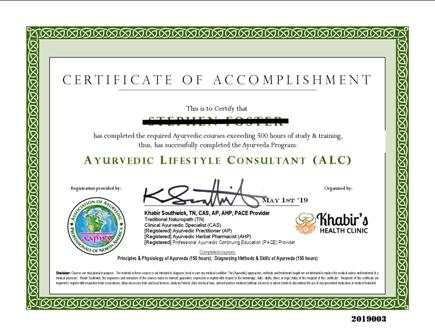
Ayurvedic Health Counselor (AHC) & Ayurvedic Practitioner (AP) Program (details)
Registration:
Testimonials from former students
(photos of past events, 2021 course is on Zoom)
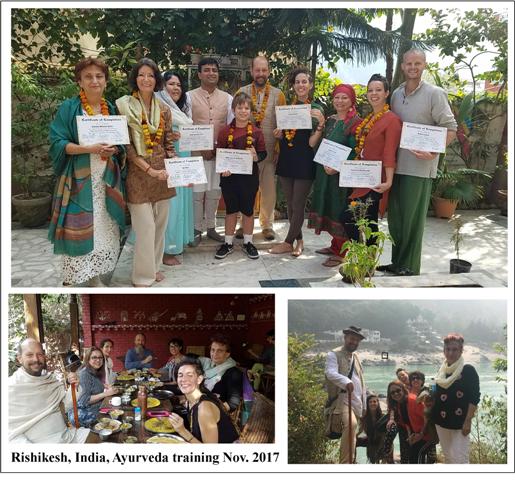
Event Details
| Date & Start Time | 09-11-2021 10:00 am |
| End Time & Date | 09-12-2021 2:30 pm |
| Capacity | 15 |
| Cost(s) | $300 |
| Location | Online |
Location - Online
You will receive email notices with the link the event.
Khabir Southwick is available for [face-to-face] consultations in Ojai California, Bulverde Texas or remotely by Zoom worldwide.
Fees and Health Assessment Forms
Call or text 805-858-9222 for more information. For general inquires: email info @ KhabirsClinic .com







